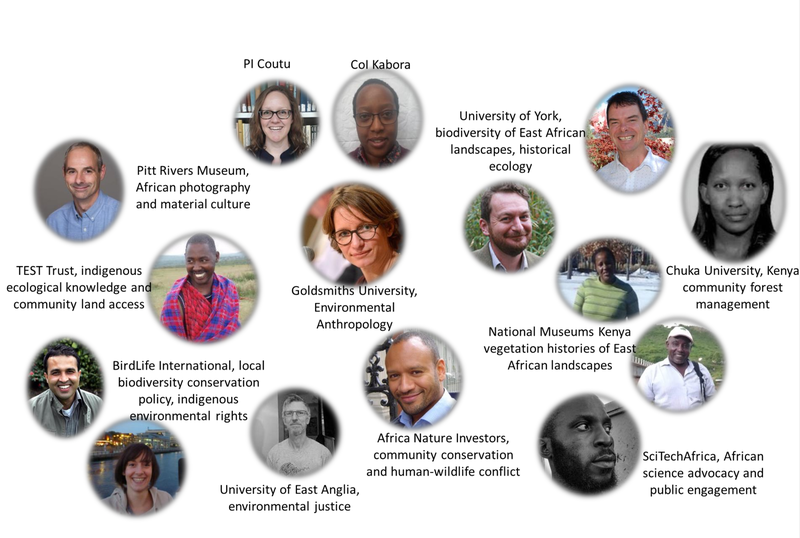Activating the Archive
Principal Investigator: Dr Ashley Coutu (Pitt Rivers Museum)
Co-Investigator: Dr Tabitha Kabora (University of York)
February 2022 - February 2023
An AHRC / NERC project funded by a grant of £125,000 as part of the Hidden histories of environmental science: Acknowledging legacies of race, social injustice and exclusion to inform the future scheme.
Project summary
The impact of British colonial rule on the landscapes and communities they controlled in countries such as Kenya and Nigeria has had far reaching effects on people's perceptions of what constitutes natural landscapes and how people interact with and manage their environments. These colonial legacies have raised further challenges in contemporary attempts to improve inclusion in addressing environmental issues due to the legacies of exclusion and racism that have hampered efforts to engage diverse communities in environmental sciences and in environmental justice agendas. Anthropological collections such as those in the Pitt Rivers Museums (PRM), containing a wide range of biological materials, objects, photographs and manuscripts collected by colonial scientists, have created a wealth of archives relating to the environmental histories of these landscapes, and importantly about indigenous knowledge systems, many which have been lost through the process of colonisation. Utilising these archives, the project aims to explore the link between colonial science perspectives and the different value systems placed on ecological knowledge that resulted in these legacies of exclusionary environmental histories.
The project will address three main questions:
1. How is environmental history materialised through objects and photographs collected by colonial officers and scientists held in museum collections?
2. How are landscapes and natural resources valued differently from diverse cultural perspectives and how did actions of colonial governments affect ecological knowledge and land use which create these environmental histories?
3. What sustainability solutions do the collections from Africa hold to respond to current environmental challenges? What does the forgotten past teach us about a better future?
To address these questions the project will use a series of workshops to bring together a group of contributors across different disciplines and cultural backgrounds to interact with collections of materials from Kenya and Nigeria. Our project brings together academics in anthropology, archaeology, and environmental science alongside freelance journalists, artists, NGOs and museum curators. Through the use of digital methods developed at the PRM for conducting object handling sessions, the contributors at the workshop will be able to engage 'live' with the museum collections that have been put together and evaluate the themes and identify key connections that help answer the research questions posed. These will then be developed into outputs such as exhibitions, public engagement activities, interdisciplinary databases of the curated collections and frameworks for improving engagement in, and perceptions of, environment sciences across disciplines and cultures in the UK.
Workshops and Contributors
We will convene four hybrid (virtual and in-person) workshops with a group of contributors over 12 months (January - December 2022) to engage with objects and photographs from the PRM collections (See Attachment ‘Visual Evidence’ for example of PRM object and photograph to be used in the workshops). The themes are currently broad: once the project is funded, PI Coutu and CoI Kabora will narrow themes based on research in the collections and interest of the participants:
- Natural landscapes – repeat photography and environmental change; is the baseline for conservation pre-colonial landscapes?
- Use and ‘ownership’ of land - contested spaces, national park boundaries, food crops and food insecurity; colonial deforestation, community environmental justice.
- Art and technologies - what can we learn from these objects about colonialism/race/injustice? What are the histories of the removal of these objects and exclusion of local arts, technologies and ecological beliefs?
- Environmental challenges - priorities and perceptions.
The 14 contributors are from a diverse range of backgrounds and institutions and will form a key part of theresearch by being willing to share their expertise with a group of people mostly unknown to them, but also in order to engage with types of archives with which they do not normally work. The project is forming a new way of bringing together a group of environmental scientists, conservation activists, historians, anthropologists, and botanists to engage with objects and photographs from Kenya and Nigeria to respond to the questions set by the project. The team of contributors will also develop the outputs together as well as help to provide a testing ground for future UKRI research practice.
UK-based Community Partners: Dr Poshendra Satyal and Dr. Amy McDougall, BirdLife International Africa-based Community Partner: Yannick Ndoinyo, Director of Traditional Ecosystems Survival Tanzania (TEST) Trust and MSc student at University of Oxford
UK-based contributors: Dr. Pauline von Hellermann, Senior Lecturer, Anthropology, Goldsmiths University; Professor Adrian Martin, Environment and Development, University of East Anglia; Postgraduate student from Interdisciplinary Centre for Conservation Science at the University of Oxford; Professor Rob Marchant, Professor, Department of Environment and Geography, University of York; Dr. Daryl Stump, Lecturer, Departments of Archaeology and Environment and Geography, University of York; Dr Christopher Morton (PRM).
Africa-based contributors: Dr. Stephen Rucina, Senior Research Scientist, Earth Sciences Department, National Museums of Kenya, Nairobi, Kenya; Dr. Veronica Muiruri, Research Scientist, Earth Sciences Department, National Museums of Kenya, Nairobi, Kenya; Dr. Agatha Nthenge, Assistant Lecturer, Uwagbale Edward-Ekpu, founder of SciTech Africa, Nigeria; Tunde Morakinyo, Africa Nature Investors, Nigeria.
In the workshops, we will be using a range of research methods to engage with the collections. One of these is repeat photography, where we will use historic photographs from one location and compare with aerial and other photography collected by CoI Kabora from more recent periods in these same landscapes, such as the Mt Kenya region. We will also explore materials and objects in the collections related to the use of the land and how those uses were impacted by the process of colonisation. These include the gazetting of land for national parks, banning hunting or grazing of cattle by indigenous groups, and the planting of single food crops such as coffee plantations.
These themes were developed by our contributors, who are all interested in how the PRM archives could potentially shed light on the impact of colonial history on the narratives surrounding the policy and management of the environment in these same places today. Each contributor works in relation to at least one of these themes, and thus each workshop will naturally have a few contributors who know more about certain topics. However, this is also the point of having all contributors attend all workshops, so that everyone crosses disciplinary as well as geographic boundaries.




